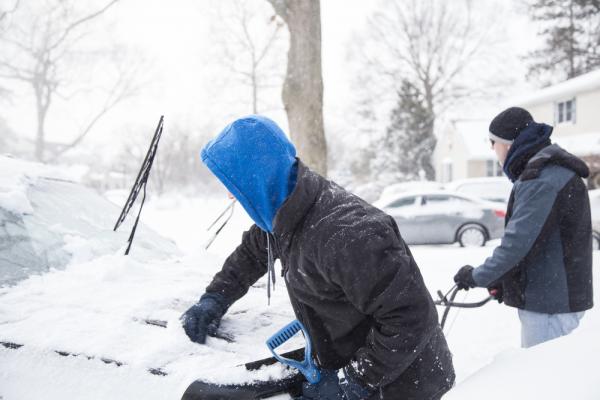Last Thursday, as I carefully navigated my way home from work on the slippery streets of a few Chicago suburbs, I was listening to a talk radio program. The host reminded his listeners that he broadcasts from sunny Arizona, and then he said, “I know that many of you have had large amounts of snowfall. I recommend that you sit back and enjoy the beauty of the snow.”
At which point I yelled some expletives about what he could do with his recommendation and promptly changed the station.
It’s been a brutal winter. Indeed, we’ve already had “large amounts of snowfall.” Yesterday in Chiberea (that’s an amalgamation of Chicago and Siberia, for those keeping score), the high was negative 13 and today the high will be positive 3. Yay for staying positive, Chicago.
Staying positive about the weather is becoming more difficult. The snow, while pretty, will be here from late November to early March. It. Gets. OId. And schools have been canceled for two days in a row. Listen, I love my kids, but they’ve been stuck inside for the past five days. We are all experiencing cabin fever.
But there’s one thing about Chicago winters that I can appreciate. The relentless snow and the extreme cold provide an opportunity to build a sense of community. Neighbors suffer through this weather together. We check in on one another to make sure people are surviving and staying warm. And, of course, we create a sense of community by uniting against the weather. The snow and the cold become our common enemy. Or, as René Girard’s mimetic theory puts it, the weather has become our scapegoat.
Read the Full Article

